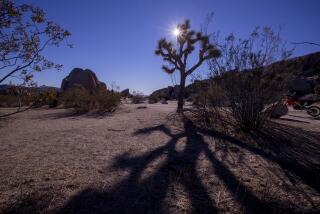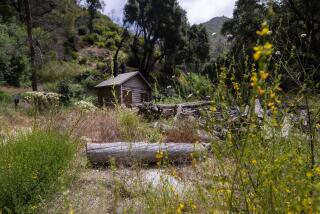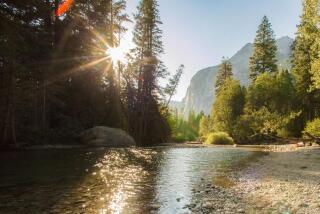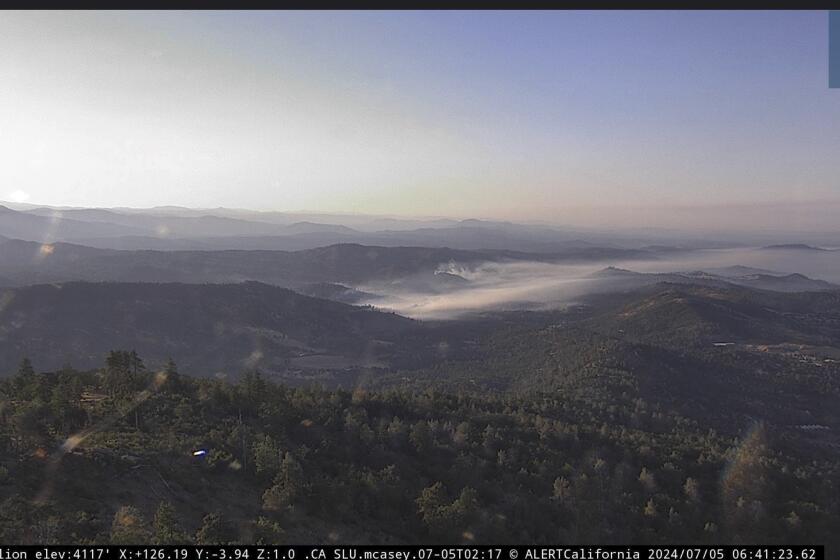Amid government shutdown, Joshua Tree campgrounds will close as toilets near capacity
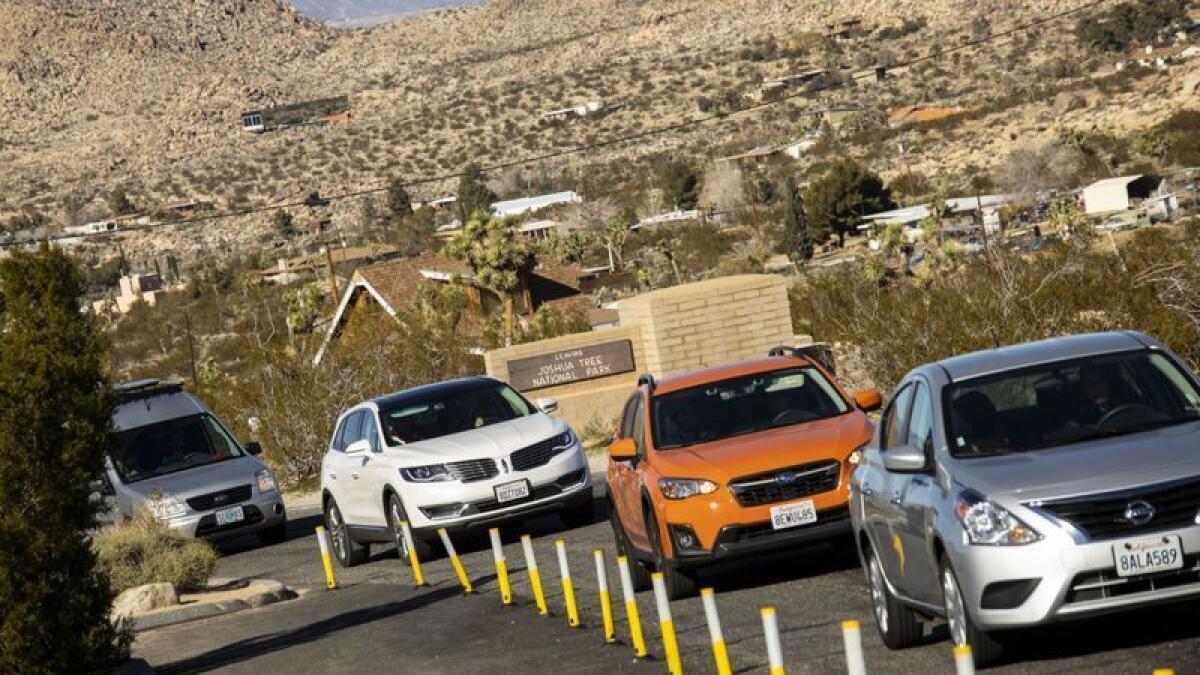
The fun is over at Joshua Tree National Park. Blame feces.
Campgrounds at the park will close at noon Wednesday, park officials said, citing health and safety concerns over the park’s vault toilets, which are near capacity.
Park visitor centers, flush toilets, water-filling stations and dump stations are all closed because of the federal government’s partial shutdown. Vault toilets — the waterless bathrooms in which visitors can relieve themselves into a sealed container that is buried underground — had remained open. But with no workers to pump out the waste, those are being closed now as well.
But the park left the main gates open and let cars stream in for free, as there are no government employees to charge the typical $30-a-car entrance fee.
Some rangers remained to patrol the 1,235-square-mile park, a popular winter destination for hikers and rock climbers.
Park officials said Monday in a news release that human waste in public areas, off-road driving and other infractions are becoming a problem as the government shutdown drags on.
The park’s restrooms and visitor centers have been closed and trash collection suspended since the partial shutdown began Dec. 22, but the park itself remains open.
At Joshua Tree, the Indian Cove and Black Rock campgrounds will be open for day use only, from sunrise to sunset. Rattlesnake Canyon will be closed to reduce the number of search and rescue events for rangers already spread thin, park officials said.
Some local volunteers have been doing their part to clean up the park and restock toilets.
“I want to extend a sincere thanks to local businesses, volunteer groups and tribal members who have done their best to assist in picking up litter and helping maintain campgrounds,” park Supt. David Smith said in a statement. “This is no reflection on their efforts and the park is very fortunate to have a community that exhibits the kind of care and concern witnessed over the last week.”
The lack of restrooms has been an issue at other national parks as well.
Yosemite National Park visitors using the side of the road as a toilet have prompted the park to close two campgrounds and a popular redwood grove for public safety reasons.
The park’s restrooms and visitor centers have been closed and trash collection suspended since the shutdown began, but the park itself remains open.
“With restrooms closed, some visitors are opting to deposit their waste in natural areas adjacent to high-traffic areas, which creates a health hazard for other visitors,” National Parks Service spokesman Andrew Munoz said in an email Saturday.
Human feces and urine along Wawona Road, also known as California Highway 41, in the south part of the park contributed to the closure of the Mariposa Grove of redwoods as well as the Wawona and Hodgson Meadows campgrounds, a park statement said.
Park officials are urging visitors to use restrooms in nearby communities before they enter the park and to pack out their trash. Yosemite Valley’s lodgings, restaurants, ski area at Badger Pass and the park shuttle remain open.
Death Valley, whose most popular landmarks have been crowded during the winter holidays, said outhouses are open but aren’t being cleaned or stocked with toilet paper during the closure.
More to Read
Start your day right
Sign up for Essential California for news, features and recommendations from the L.A. Times and beyond in your inbox six days a week.
You may occasionally receive promotional content from the Los Angeles Times.
